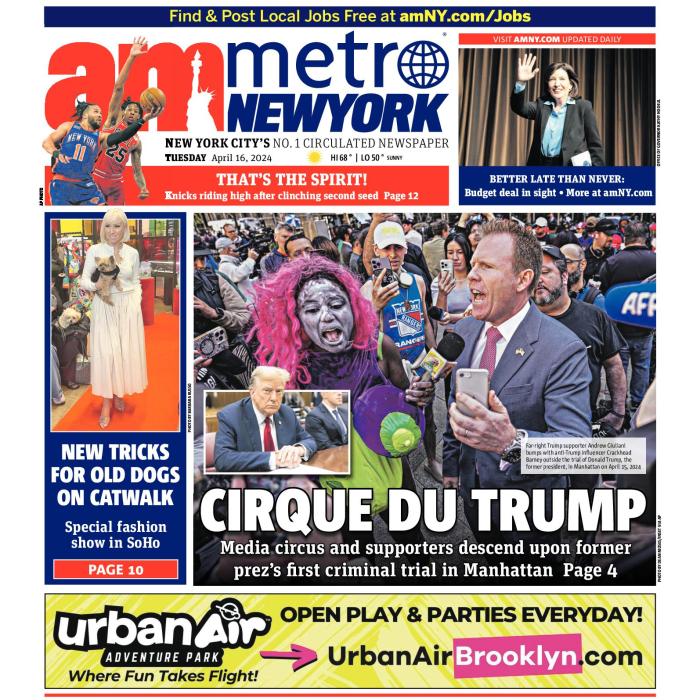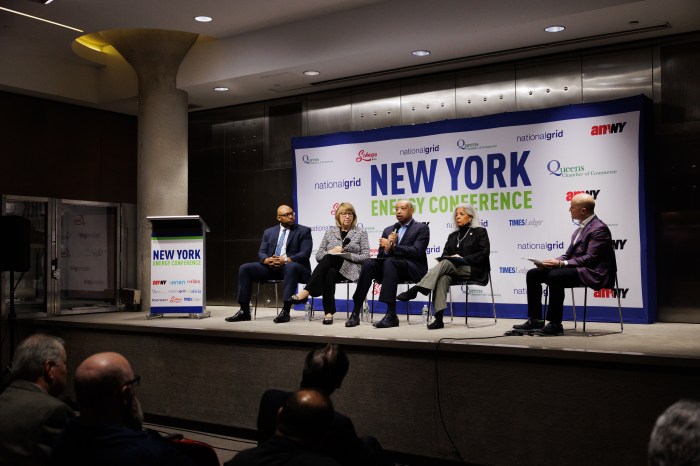
It only lasted a short while, no more than a year or two, that New York City Public Advocate Jumaane Williams sold pot.
It was in high school, while he was a student at Brooklyn Tech, selling a little to students, or people at his then-girlfriend’s school, LaGuardia High School of Music & Art and Performing Arts.
Williams made this admission at a Brooklyn Public Library panel about marijuana on Monday. He was hardly a player. For a short time he just brought some of his friend’s nickel and dime bags to customers and kept a little of the money he ferried back: a dollar for the nickel, two for the dime. It was a way to buy comics and snacks. He now doesn’t think it’s a great idea for high school kids to be selling, whether or not the substance becomes legal. But he says he wanted to tell the story to give people a more realistic picture of marijuana use.
“I’m just hoping that we continue to destigmatize these things and be more realistic about who’s doing what,” Williams said in a phone interview on Tuesday, while he was out of the city for the People’s Action political convention in D.C.
Today Williams can go to conferences like that because he didn’t end up with a teenage criminal record, for selling what some American companies now dispense legally. Instead, he’s one of the city’s leading politicians, next in the line of succession to the mayor.
The Brooklyn Democrat has long challenged stereotypes of a “traditional” politician’s image. He wore long dreadlocks when he served in the City Council. He often carries a backpack and wears a “Stay Woke” pin. He has Tourette’s syndrome and sometimes twitches mid-speech.
Late on the February night he won the special election for public advocate, he gave an emotional victory speech about being a young black boy “trying to find his space in the world” and his experience in therapy.
The marijuana admission seems to be in that vein, showing another side of the city.
Williams says he doesn’t remember exactly when he started selling, but he remembers when it ended: when one person didn’t want to pay for a nickel bag in Starrett City. The person said to tell Williams’ friend that if that was a problem, come deal with it. These situations tend to escalate.
“That’s not worth it for some extra comic books,” Williams remembers thinking.
So Williams went on to other things, though he knew people who didn’t. Sometimes people get out of these situations, sometimes they don’t. Racial disparities in arrest numbers for marijuana possession paint a pretty good picture of how the policing of marijuana has affected many black New Yorkers.
Williams says legalization “should have happened a long time ago.” There was a moment when that seemed possible in this year’s legislative session in Albany. Advocates will likely have to wait until next year, but Williams says that’s not necessarily a bad thing as there are issues that need to be hammered out. He wants past marijuana records to be expunged, and he wants people of all different backgrounds to have access to marijuana sales opportunities. Including if they have a criminal record, for example.
These are the equity issues being debated as marijuana becomes more and more mainstream. But as the debate unfolds, disparities continue, now across state lines. Get together some capital and open a groovy dispensary in Colorado or Massachusetts. But for the young Jumaane who for whatever reason is passing off a dime bag or two in Brooklyn?
An email to the Brooklyn district attorney’s office brings you back to legal reality even in the progressive borough. Small amounts of possession might not get you in trouble, but it’s not the same for small amounts of sales: “Our prosecution declination policy only pertains to possession,” says a spokesman. “Sales are still being prosecuted.”

















